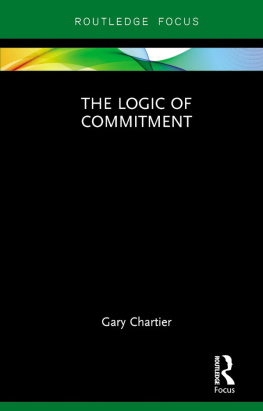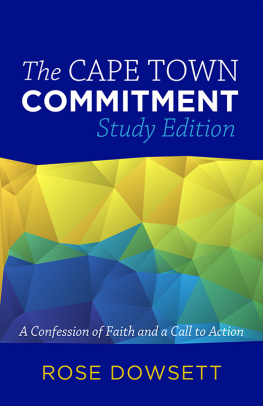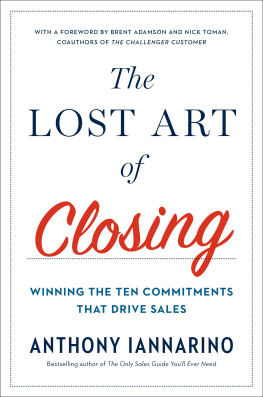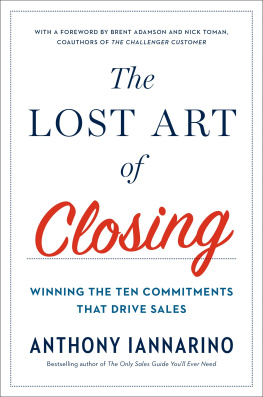The Logic of Commitment
A brief but compelling study of the logic and morality of personal commitments, and their importance for a life well lived. Gary Chartiers clear prose and wide reading make this an important contribution to ethical and meta-ethical theory.
Stephen R. L. Clark, University of Liverpool
Commitments matter, writes Gary Chartier in his new book: they provide needed structure and direction for our lives and the grounding we need to craft stable identities and secure our projects. In this careful, scholarly, and revealing study Chartier develops a conception of commitments that shows their deep analogy with promises, and makes important headway on some of the puzzles and problems that the notion of a commitment raises for our theory of motivation and practical reason. This book can be recommended to anyone who wants to see how a distinctively non-consequentialist philosophical ethics can be put together on the basis of a deep pluralism about the human goods.
Sophie-Grace Chappell, Open University
In this engaging and original discussion of commitment, Gary Chartier distinguishes commitments from promises, and shows the role commitments play in love, in creating and sustaining an integrated self, in character development, and in well-being. A commitment is a firm resolve to do or be something that binds the agents future actions and attitudes; it may involve others, but it is an obligation to oneself, not to others. For example, one can make a commitment to keep a promise to someone. This generates self-regarding reasons, in addition to the obvious other-regarding ones, for keeping the promise. This concern for the self one creates and preserves through ones commitments is very much in the spirit of a natural law or eudaimonistic ethics, showing the value of making commitments serves to provide further support for this ethics.
Neera Badhwar, University of Oklahoma
This book develops and defends a conception of commitment and explores its limits. Gary Chartier shows how commitment serves to resolve conflicts between ordinary moral intuitions and the reality that the basic aspects of human well-being are incommensurable. He outlines a variety of overlapping and mutually reinforcing rationales for making commitments, explores the relationship between commitment and vocation and the relevance of commitment to love, and notes some reasons why it might make sense to disregard ones commitments. The Logic of Commitment will appeal to ethicists interested in the connection between commitment and personal well-being, and to anyone who wonders why and when it might make sense to make or keep commitments.
Gary Chartier is Distinguished Professor of Law and Business Ethics at La Sierra University.
Routledge Focus on Philosophy
Routledge Focus on Philosophy is an exciting and innovative new series, capturing and disseminating some of the best and most exciting new research in philosophy in short book form. Peer reviewed and at a maximum of fifty thousand words shorter than the typical research monograph, Routledge Focus on Philosophy titles are available in both ebook and print on demand format. Tackling big topics in a digestible format, the series opens up important philosophical research for a wider audience, and as such is invaluable reading for the scholar, researcher and student seeking to keep their finger on the pulse of the discipline. The series also reflects the growing interdisciplinarity within philosophy and will be of interest to those in related disciplines across the humanities and social sciences.
Forthcoming titles:
The Logic of Commitment
Gary Chartier
Plant Minds
Chauncey Maher
Moral Thinking: Fast and Slow
Hanno Sauer
Knowledge Transmission
Stephen Wright
Mind-reading and the Philosophy of Social Cognition
Shannon Spaulding
www.routledge.com/Routledge-Focus-on-Philosophy/book-series/RFP
The Logic of Commitment
Gary Chartier

First published 2018
by Routledge
711 Third Avenue, New York, NY 10017
and by Routledge
2 Park Square, Milton Park, Abingdon, Oxon OX14 4RN
Routledge is an imprint of the Taylor & Francis Group, an informa business
2018 Taylor & Francis
The right of Gary Chartier to be identified as author of this work has been asserted by him in accordance with sections 77 and 78 of the Copyright, Designs and Patents Act 1988.
All rights reserved. No part of this book may be reprinted or reproduced or utilised in any form or by any electronic, mechanical, or other means, now known or hereafter invented, including photocopying and recording, or in any information storage or retrieval system, without permission in writing from the publishers.
Trademark notice: Product or corporate names may be trademarks or registered trademarks, and are used only for identification and explanation without intent to infringe.
Library of Congress Cataloging-in-Publication Data
A catalog record for this book has been requested
ISBN: 978-1-138-30148-1 (hbk)
ISBN: 978-0-203-73245-8 (ebk)
Typeset in Times New Roman
by Apex CoVantage, LLC
For you,
at the water fountain
in front of the white horse
Contents
Thanks as always to the usual suspectsA. Ligia Radoias, Aena Prakash, Annette Bryson, Alexander Lian, Andrew Howe, Carole Pateman, Christopher C. Reeves, Craig R. Kinzer, David B. Hoppe, David Gordon, David R. Larson, Deborah K. Dunn, Donna L. Carlson, Eddy Palacios, Elenor L. Webb, Ellen Hubbell, Eva Pascal, Jeffrey D. Cassidy, Joel Wilson, John Thomas, Julio C. Muoz, Kenneth A. Dickey, Ladan Ask, Lawrence T. Geraty, Linn Marie Tonstad, Maria Zlateva, Melissa Cushman, Michael Orlando, Nabil Abu-Assal, Patricia M. Cabrera, Roger E. Rustad, Jr., Ronel S. Harvey, Ruth E. E. Burke, Sel J. Hwahng, Sheldon Richman, Tanja M. Laden, Trisha Famisaran, W. Kent Rogers, and Wonil Kimfor the usual reasons.
Brian Hebblethwaite, John Hick, Michael Banner, Seana Shiffrin, Stephen R. L. Clark, and Stephen R. Munzer all played valuable roles at various points in my post-baccalaureate formation as a philosopher; none of them should, of course, be held responsible for what Ive written here. A number of philosophersnotably Bernard Williams, David Schmidtz, Germain Grisez, John Finnis, Jon Elster, Joseph Raz, Margaret Farley, Mark C. Murphy, Robert P. George, and Robert Nozickhave taught me much of what I know of a theoretical nature about commitment, and I have drawn shamelessly, even if with acknowledgment, on their many valuable insights and formulations. At the same time, commitment is a topic probably explored at least as much outside as within the academy, and much of what Ive learned about commitment, its consequences, and whats needed to safeguard it Ive learned from writersoften coaches, counselors, or therapistswhose names might not ordinarily turn up in philosophical footnotes. They include Barbara De Angelis, Blase Harris, Clay Andrews and Mika Terao, David Truman, Elaine Claire von Keudell, Gayle and Hugh Prather, Harville Hendrix and Helen LaKelly Hunt, Henry Cloud and John Townsend, John Gottman, Judith Sills, Linda and Charlie Bloom, Shmuley Boteach, and Thomas W. McKnight.
David Gordon has demonstrated the authentic commitment of a true friend in the course of carefully reviewing this book in advance of its publicationwith respect to some portions, on multiple occasions. With characteristic rapidity and insight, Sandy Thatcher offered useful advice regarding both the publication process and the books content. Various anonymous readers also provided thoughtful comments for which Im certainly appreciative. And I have every reason to be thankful as well to Tanja Laden, Stephen R. L. Clark, Alexander Lian, Coco Owen, Sophia Assal, and others for conversations about the book as it developed, and to Neera Badhwar for helpfully noting the need for a variety of corrections.















